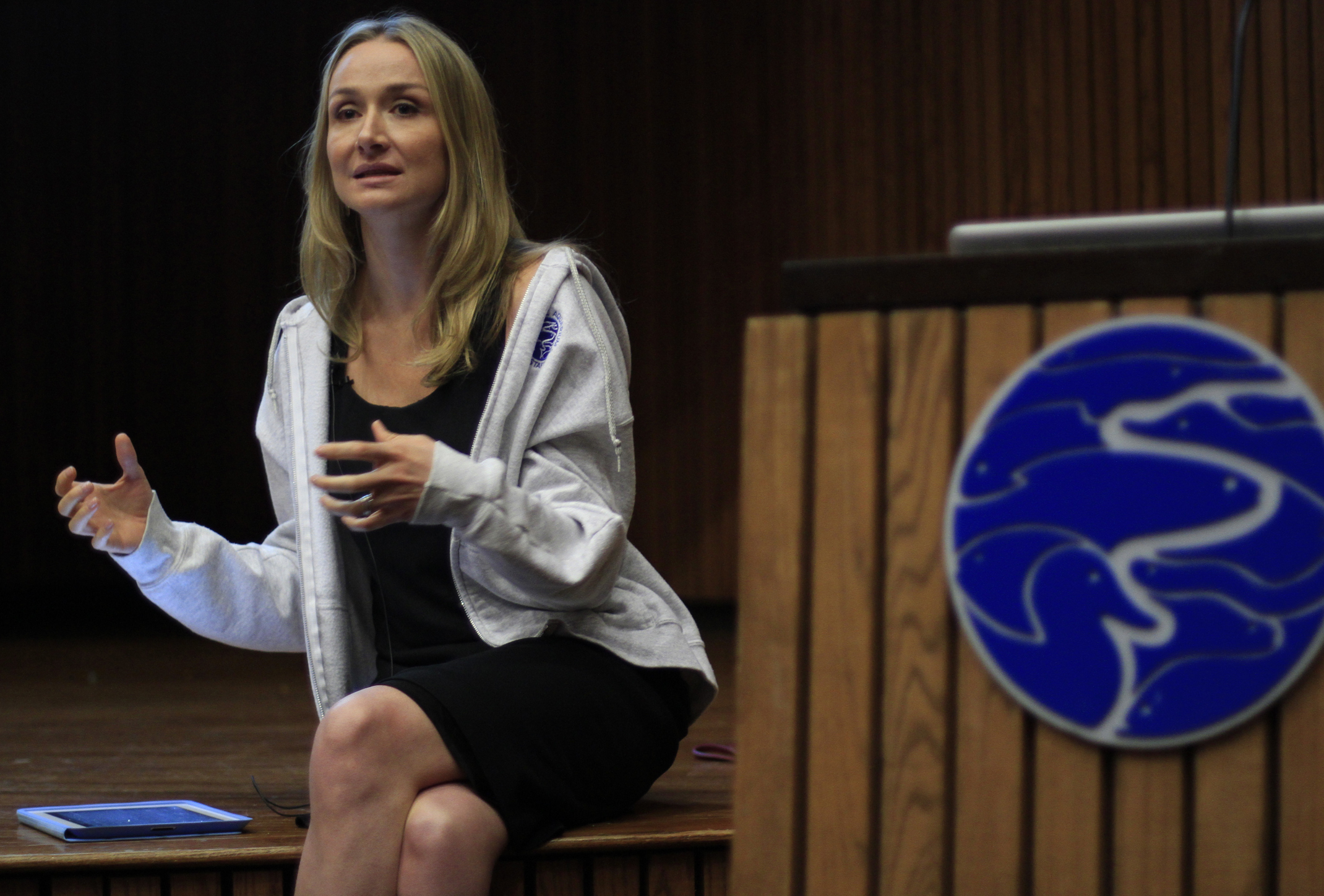The students' questions for Alexandra Cousteau began with a focus on her exotic global travels, but her answers led them back to their own backyards and the Tennessee River.
"What I realized was that a lot of what I was seeing as problems in the oceans came from fragmentation of [river] systems," she told the Howard and McCallie schools teens Thursday in the auditorium of the Tennessee Aquarium.
Cousteau's message was constant, whether debating wasted resources for bottled water or asking if the teens forgot to turn off their bedroom lights, which she said could cause more ash waste from coal-burning power plants and could lead to the sludge that polluted three rivers following a spill at TVA's Kingston, Tenn., plant in 2008.
"Everything we do resonates in the world," said Cousteau, a National Geographic emerging explorer. "While you may not be aware there is a crisis here, there may be. Get to know your water. Get in touch with the people who are working on water issues here."
The granddaughter of famed ocean explorer Jacques Cousteau, she is carrying on a family tradition: Educating people about nature and the environment around them.
The newest family explorer, Cousteau also is a filmmaker and a globally recognized advocate for water issues. She said she hopes to inspire people to protect not only the oceans, but also the human communities that rely on them and on freshwater resources.
Anna George, director of the Tennessee Aquarium Conservation Institute, took Cousteau to the Clinch River several months after the Kingston ash spill, a Dec. 22, 2008, earthen dam break that belched 5.4 million cubic yards of slushy and toxics-laden ash from a Tennessee Valley Authority landfill onto 400 acres of rural residential land and the Emory River.
TVA still is cleaning up the site at as estimated cost of $1.3 billion. Most residents in the area have been bought out by the utility.
"We saw fish with large lesions, and some even had parasites," George said. "We worked with scientists from Appalachian State University to see if they had toxics [chemicals from the spill] in their systems. And we saw spikes [of toxics] in the fish."
In the following weeks, Cousteau showed the film from East Tennessee and the ash spill on her series, "Expedition Blue Planet: North America."
Cousteau said she does the work -- video storytelling about water in one community at a time -- because "witnessing what we've lost in my lifetime" disturbs her.
"I have a 13-month-old daughter, and I will never be able to show her some things I saw in my childhood," she said.
She said she's also driven by the "myth" that society must compromise resources to have a good economy. She used the ash spill and coal as an example.
"Coal is going to be part of our future for a while longer, but we can do a lot better job with it," she said. "We figured out how to keep it out of air, now lets figure out how to keep it out of our water. It would build our economy. It would build jobs."
On advocating for and improving water:
"It's not a blue or red issue, or a young or old issue. It's our issue," Cousteau said.
Cousteau's visit with the teens and another talk at the Imax Thursday night were sponsored by NOAA, the National Oceanic and Atmospheric Administration.
